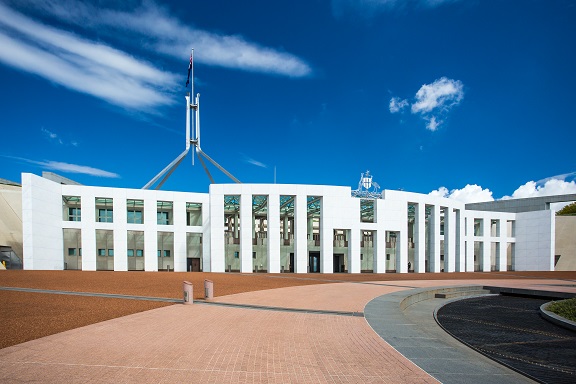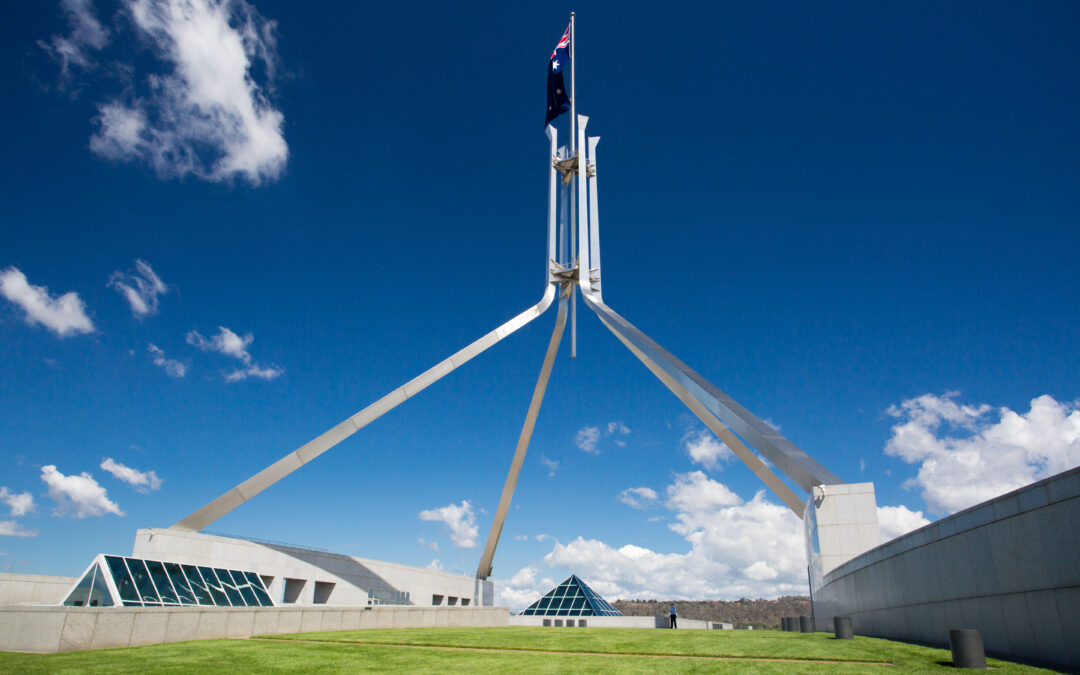
by Ashley Gardiner | Jan 10, 2024 | Media Release
The cost of living problems being borne by Australian consumers will worsen if the ongoing industrial dispute on the waterfront is left to continue without intervention.
Australia’s largest and most representative business network said the warning of severe economic repercussions issued by DP World, resulting from the ongoing industrial dispute with the Maritime Union of Australia, demonstrated the urgent need for government attention.
“Economic modelling from DP World indicates that the cost of the MUA’s industrial action is an astounding $84 million per week,” ACCI chief of policy and advocacy David Alexander said.
“This dispute is significantly affecting industries across the board, including industries as diverse as retailers and the meat export sector.
“The dispute is exacerbating the cost-of-living crisis.
“The longer the government waits, the more Australia’s economy will suffer.”

by Ashley Gardiner | Dec 13, 2023 | Media Release
Strong growth in taxes paid by Australian businesses has improved the budget outlook for 2023-24, Australia’s largest and most representative business network said today.
“Australian businesses are doing the heavy lifting through increased tax receipts that have underwritten an improved budget position,” ACCI chief executive officer Andrew McKellar said
The revised 2023-24 budget deficit forecast of $1.1 billion represents a turnaround from $13.9 billion predicted in May.
“The government must now focus on forging a long-term strategy based on sustainable fiscal practices,” ACCI chief executive officer Andrew McKellar said.
“To their credit, the government has wisely used the increased revenue for debt reduction, positioning Australia for lower deficits, reduced debt growth, and diminished interest payments in the future.
“However, the slowing GDP growth forecast for 2023-24 necessitates a strategic approach to spending.
“Growth in spending is currently far outpacing growth in the economy, increasing by 4.7 per cent this year to a very high level of 25.7 per cent of GDP, and further increasing over the next two years to 26.1 per cent of GDP.
“With the future deficits to be fuelled by growth in interest payments, the NDIS, healthcare, and aged care, the government must have a strategy for addressing spending.
“What’s missing from the government’s agenda is a focus on productivity.
“In fact, the government is introducing complex, productivity-sapping industrial relations changes that choke productivity and drive up costs for businesses and consumers.
“The government has not committed to increasing productivity. It is trying to grow wages while expanding the regulations it places on business, increasing bureaucracy and stunting business growth.
“While business welcomes the $9.8 billion in reprioritisation and savings outlined by the government, such a long-sighted approach is not consistent in all the government’s plans.
“In the area of infrastructure spending, including an additional $6.8 billion to support current projects, must focus on lifting productivity. Indiscriminate spending in this area could further fuel inflation.
“The housing crisis remains a significant concern, and whilst the $3 billion New Home Bonus is a positive step, careful targeting is essential to prevent an increase in housing costs and further inflation.
“The additional $3 billion allocated to stimulate new investment in critical minerals and clean energy is an investment in Australia’s future economic resilience.
“It is critical that any cost-of-living relief, be carefully targeted to avoid exacerbating the already present inflationary pressures.
“The government must be disciplined with its spending if it is to achieve sustainable economic growth.
“You can’t rely on business to keep paying the bills if you’re tying one arm behind its back with over-regulation and industrial relations mismanagement.”

by Ashley Gardiner | Dec 11, 2023 | Media Release
In response to the government’s new migration strategy, the nation’s largest business network welcomes the much-needed steps taken to address critical workforce shortages and streamline the immigration process.
“The strategy marks a pivotal shift towards fostering sustainable growth, employment creation and innovation within Australia’s business landscape,” ACCI chief executive officer Andrew McKellar said.
“The creation of a new three-tiered temporary skills pathway will assist employers as they attempt to navigate our currently complex system. The introduction of service guarantees on visa pathways that target elite talent will help Australia attract highly skilled migrants in sectors like the resources sector, technology, and financial services. This will unleash new innovations, lure foreign investment, and build new industry.
“Business applauds proposed measures to reduce complexity in the system and ensure visa processing times are further expedited. The creation of a specialist skills pathway for jobs that pay above $135,000 with a seven-day visa processing time will allow us to compete globally for the best and brightest.
“It is however unfortunate that the specialist skills pathway excludes tradespeople from accessing this category – they will be able to come into the country only through the core skills pathway.
“Business welcomes the removal of labour market testing and overhaul of skill occupation lists, noting Jobs and Skills Australia will provide a single streamlined list to deliver the workers businesses need.
“When it is widely known that workforce shortages are at their worst in decades, requiring a business to advertise the position for at least four weeks before they can look overseas just slows the process down.
“We note the Temporary Skilled Migration Income Threshold is to be indexed annually. We will closely monitor this to ensure that regional and rural businesses do not face added disadvantage.
“The commitment to prioritise regional visa applicants as the highest priority is welcomed but it must be balanced to ensure that the introduction of greater worker mobility does not disadvantage employers, particularly in regional and rural Australia.
“We know it can cost businesses thousands to bring in workers to assist with their labour shortages. It is vital that all government charges are moved to a monthly payment rather than upfront to assist businesses.
“The Working Holiday Maker program is vital for providing a stream of workers for our cafes, bars, restaurants, hotels and high-end resorts across Australia. We look forward to working with the government to ensure the right settings are struck to maintain this pipeline.
“The announcement of a pathway to permanency for temporary skilled migrants is something that ACCI has been calling for. It means Australia can be the destination of choice for the world’s best talent. Business isn’t the only beneficiary here. It allows migrants to come here, settle, raise families, and contribute to their local community.”

by Ashley Gardiner | Dec 7, 2023 | Media Release
The cost of living for millions of Australians will rise, and the job-creation capacity of businesses will be smothered, under legislation set to pass today.
“This is a sad day for keeping the cost of living low and creating more jobs,” ACCI chief executive Andrew McKellar said.
“The Australian economy and the jobs it creates will be subject to the whims of an increasingly aggressive trade union movement.
“These laws are currently undergoing extensive scrutiny as part of the Senate process. It is difficult to understand why government senators would undermine the proceedings of their own chamber.
“The business community has always supported splitting the bill to deal with measures such as improving worker safety.”
The so-called ‘same job, same pay’ laws will substantially increase red tape for businesses and increase costs for those legitimate labour hire arrangements used to deal with busy times or staff shortages.
“This won’t just impact the mining sector. A range of vital industries rely on labour hire including healthcare, construction, manufacturing and hospitality,” Mr McKellar said.
“These expenses will be ultimately passed on to consumers amid a cost-of-living crisis.”
The radical new laws being snuck through today will also make union delegates the most protected workers in the country.
The ability of workplace delegates to take paid time off or to recruit new members will have stronger protection than a non-union employee’s right to take sick leave.
Businesses will continue to fight against the remainder of the legislation, including the attack on casual employment and interference with the rights of Australians to be their own boss.
“These laws have absolutely nothing to do with safety or ‘closing a loophole’ and were never taken to the Australian people at an election. The only ‘loophole’ these laws seek to close is the abysmally low union membership rates,” Mr McKellar said.
by Ashley Gardiner | Nov 29, 2023 | Media Release
Business is disappointed in the government’s support for a radical Greens amendment which would reshape how enterprise bargaining is conducted in Australia.
“The government voted in favour of a Greens’ amendment to its IR bill which would wipe out any form of give and take in bargaining negotiations,” ACCI chief executive officer Andrew McKellar said.
“The amendment, which seeks to change a law that only came into effect a matter of months ago, will mean that unions can drag out a bargaining dispute, unilaterally force a matter to be arbitrated by the Fair Work Commission, and because of the government-backed Greens change, the employer will be worse off than before.
“This proposed amendment undermines arbitration as a moderating force in disputes and will incentivise unions to stall and disrupt negotiations to trigger the new intractable bargaining clauses.
“We will see fewer agreements being made between parties and more unilateral decisions by the Fair Work Commission – further destroying productivity in our workplaces.
“The Greens’ amendment to this process would be incredibly harmful and would have the effect of fundamentally reshaping enterprise bargaining in Australia. It must be rejected by the Senate.
“This development is a sign that the government is content to outsource its workplace relations policy – a key plank of our economy – to the far left of politics.
“Reports that the government will similarly give in to pressure from the Greens in the Senate and legislate a right to disconnect is also concerning. Punishing employers for connecting with employees after hours is not consistent with the expectations of our modern economy. It is the antithesis of flexibility, which we need more of to drive higher productivity and higher wages.
“Business calls on government and the Senate to reject these radical proposals.”



